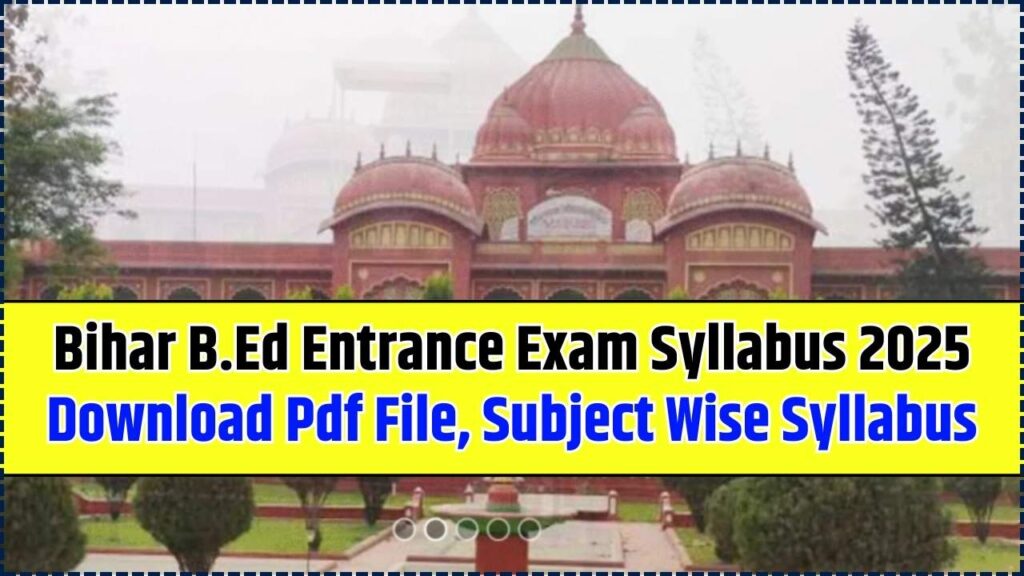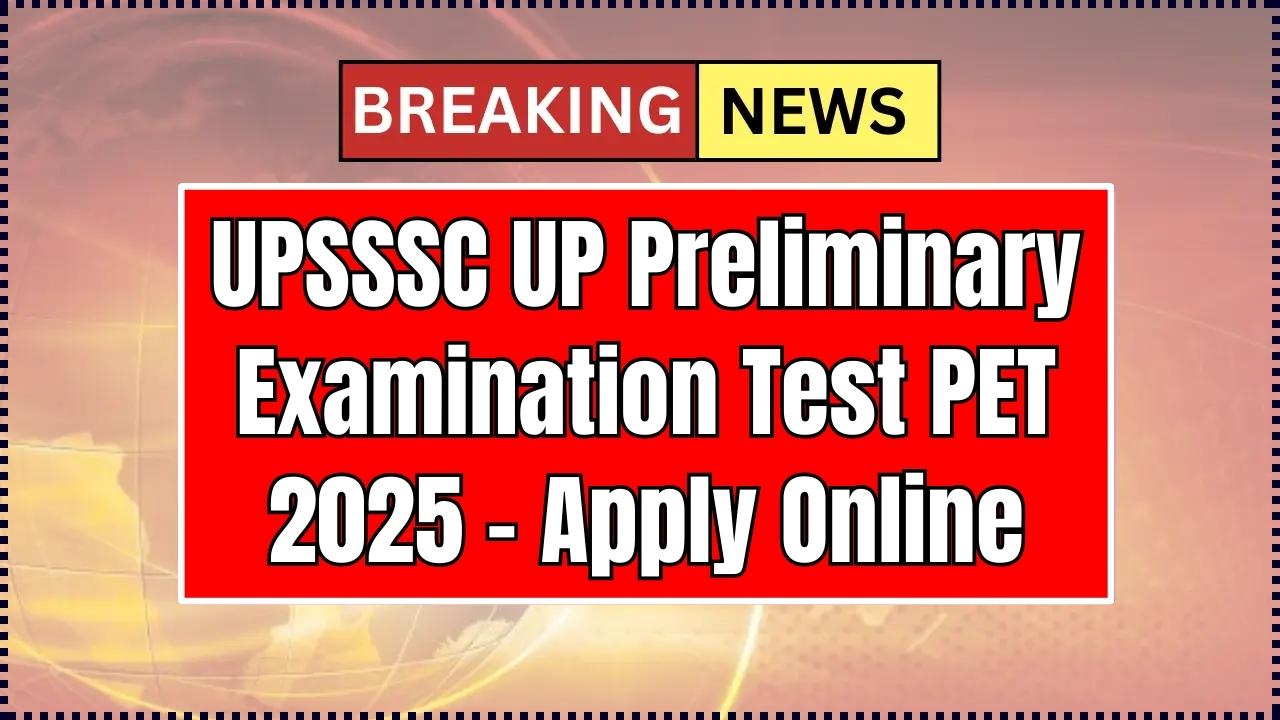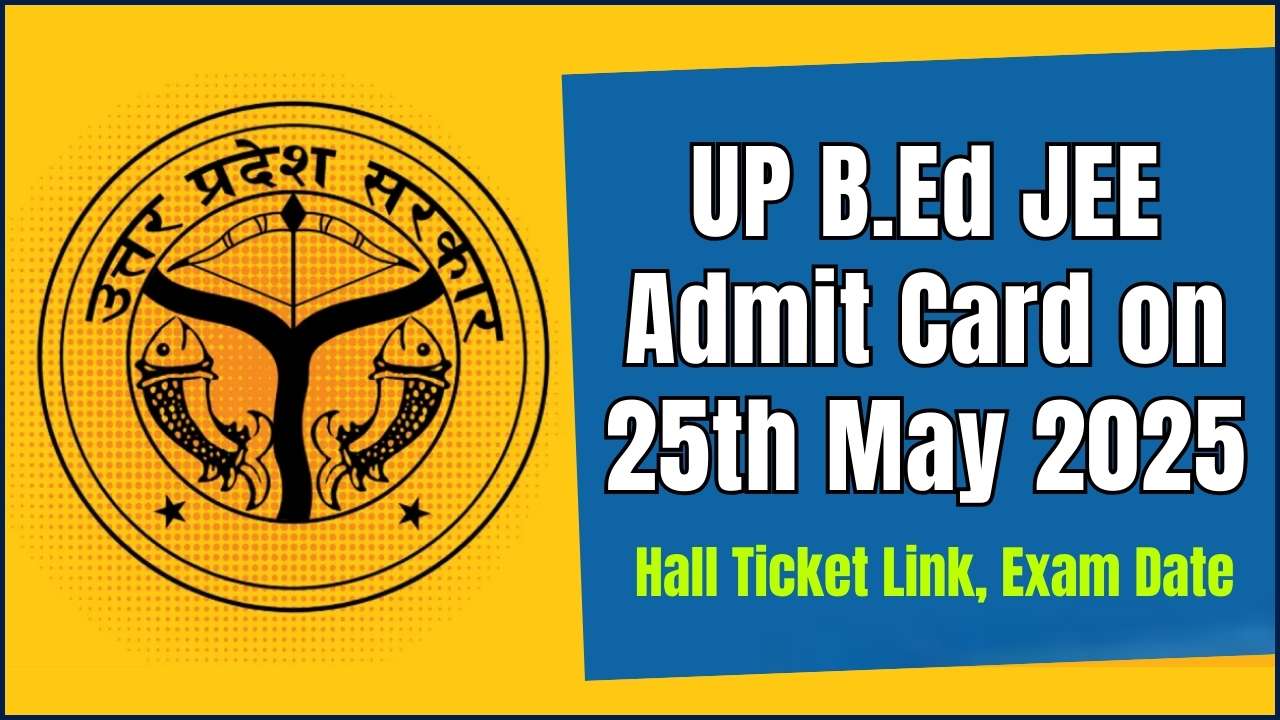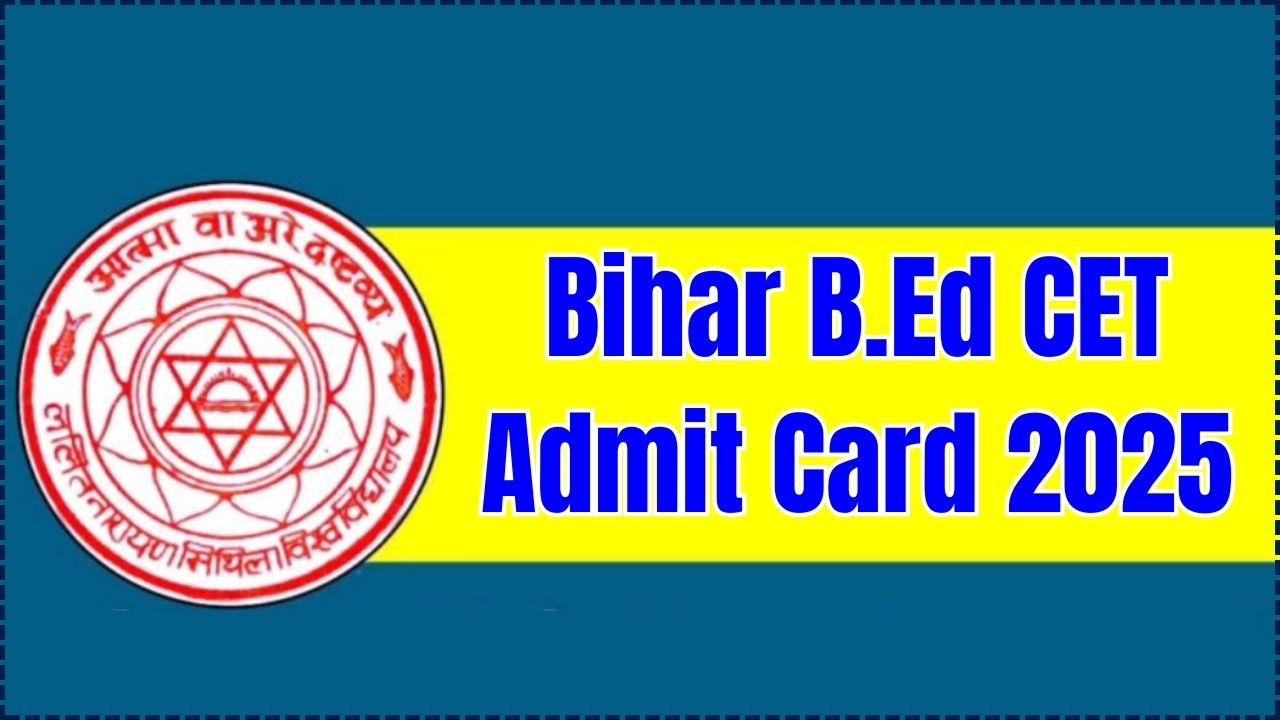Bihar B.Ed Entrance Exam Syllabus 2025: The Bihar B.Ed Entrance Exam Syllabus 2025 has been officially announced by Lalit Narayan Mithila University (LNMU), the authorized institution responsible for conducting the Bihar Bachelor of Education Common Entrance Test (B.Ed CET). This syllabus plays a crucial role in helping aspiring teachers structure their exam preparation in a focused and effective manner.

For candidates looking to gain admission into the two-year B.Ed program in any of Bihar’s government and private colleges, mastering the exam pattern and understanding the subject-wise syllabus is essential. This guide provides an in-depth overview of the syllabus, recommended resources, preparation strategies, downloadable PDF links, and a thorough breakdown of each exam section to help you succeed in 2025.
Bihar B.Ed Entrance Exam Syllabus 2025
| Feature | Details |
|---|---|
| Exam Name | Bihar B.Ed Common Entrance Test (CET) 2025 |
| Conducting Authority | Lalit Narayan Mithila University (LNMU), Darbhanga |
| Mode of Examination | Offline (OMR-Based) |
| Exam Duration | 2 Hours |
| Total Questions | 120 |
| Total Marks | 120 |
| Negative Marking | No |
| Expected Exam Date | May 28, 2025 (Tentative) |
| Admit Card Release | May 21, 2025 (Tentative) |
| Official Website | biharcetbed-lnmu.in |
The Bihar B.Ed CET Syllabus 2025 acts as a strategic guide for aspiring educators. It outlines what to study, how much to study, and how to prioritize your preparation efforts. With no negative marking and well-structured sections, the exam is accessible—provided you prepare smartly and systematically.
Download the syllabus, build your schedule, use reliable resources, and track your progress with regular mock exams. Consistency, clarity, and a confident mindset will lead you to success.
Bihar B.Ed CET 2025 Exam Pattern: Complete Structure
The Bihar B.Ed CET 2025 is a pen-and-paper based test consisting of 120 multiple-choice questions (MCQs). Each correct response awards one mark, and there is no penalty for incorrect answers, making it a scoring-friendly exam. The paper is divided into six core sections, designed to assess language ability, reasoning, general knowledge, and awareness of educational environments.
Breakdown of Sections:
| Subject Area | No. of Questions | Total Marks |
|---|---|---|
| General English Comprehension (B.Ed) | 15 | 15 |
| OR General Sanskrit Comprehension (Shiksha Shastri) | 15 | 15 |
| General Hindi | 15 | 15 |
| Logical & Analytical Reasoning | 25 | 25 |
| General Awareness | 40 | 40 |
| Teaching-Learning Environment in Schools | 25 | 25 |
| Total | 120 | 120 |
Note: Candidates applying for Shiksha Shastri must choose Sanskrit instead of English. Only one of the two is applicable based on program selection.
Subject-Wise Syllabus Details: What to Prepare
Understanding the individual components of each section is vital. Here’s a detailed subject-wise overview:
1. General English Comprehension (B.Ed Applicants)
- Vocabulary – Synonyms, Antonyms
- Grammar – Tenses, Voice, Subject-Verb Agreement, Conjunctions
- Reading Comprehension Passages
- Fill in the Blanks
- Idioms and Phrases
- Sentence Correction
- Spotting the Errors
- One-word Substitution
2. General Sanskrit Comprehension (Shiksha Shastri Applicants)
- संधि, समास
- उपसर्ग और प्रत्यय
- रस, छन्द, अलंकार
- मुहावरे और लोकोक्तियाँ
- गद्यांश का बोध (Comprehension)
- शब्द रूप / धातु रूप
- व्याकरण – कारक, काल, लिंग, वचन
3. General Hindi
- वाक्य रचना और संशोधन
- पर्यायवाची और विलोम शब्द
- मुहावरे और लोकोक्तियाँ
- अपठित गद्यांश
- सामान्य व्याकरण – संज्ञा, सर्वनाम, क्रिया, विशेषण
- रस, छंद, अलंकार
4. Logical & Analytical Reasoning
- Number Series and Alphabet Series
- Analogy, Odd One Out
- Coding-Decoding
- Blood Relations
- Syllogism
- Statement and Assumptions
- Statement and Conclusions
- Direction Test
- Clocks and Calendars
- Puzzle Solving
5. General Awareness
- National and International Current Events
- Indian History, Freedom Movement
- Indian Geography and Economics
- Constitution and Political System
- Government Educational Schemes
- Science and Technology
- Environment and Ecology
- Books, Awards, Sports, Important Days
6. Teaching-Learning Environment in Schools
- Inclusive Education Principles
- Motivation & Classroom Management
- Role of Teachers in Modern Education
- Learner-Centric Teaching Methods
- Use of Technology in Teaching (ICT)
- Educational Psychology and Child Development
- School Environment and Peer Interaction
- Pedagogical Approaches and Methodologies
Where to Download Bihar B.Ed CET 2025 Syllabus PDF
For official and accurate information, it’s highly advisable to refer to the official syllabus PDF released by LNMU.
Trusted Sources for Download:
- Official Website: biharcetbed-lnmu.in
- AglaSem Admission Portal: AglaSem Syllabus Page
- CollegeDekho: CollegeDekho CET Syllabus
Ensure that your preparation plan aligns with the latest version of the syllabus.
Effective Preparation Strategy: Top Tips to Crack the Exam
1. Start with the Official Syllabus
Print out the complete syllabus and mark high-weightage topics. Allocate days to cover each subject.
2. Choose Smart Study Materials
- Arihant Bihar B.Ed CET Book
- Lucent’s GK for General Awareness
- RS Aggarwal’s Reasoning Guide
- NCERT Class 9 to 12 Textbooks (History, Polity, Science)
3. Create a 60-Day Study Calendar
Design a daily routine covering 2 subjects/day. Reserve Sundays for mock tests and revision.
4. Solve Previous Year Papers
This helps you understand real exam difficulty, recurring questions, and important topics.
5. Take Online Mock Tests Weekly
Simulate actual exam conditions. Evaluate your scores and focus on weaker sections in subsequent study rounds.
6. Use Mnemonics & Flashcards
Especially for GK and terminology-heavy topics in teaching methodology.
FAQs
Q1. Can I choose both English and Sanskrit in the exam?
A: No. You can only select one language section—either English (for B.Ed) or Sanskrit (for Shiksha Shastri).
Q2. What is the best way to prepare for Logical Reasoning?
A: Practice from standard books like RS Aggarwal and take mock tests to improve your speed and accuracy.
Q3. How important is the Teaching-Learning Environment section?
A: It carries 25 marks and reflects your readiness for a teaching career, so give it equal importance as other sections.
Q4. Is the syllabus same every year?
A: While the core structure remains stable, slight variations may occur. Always refer to the official site for updates.
Q5. What’s a good score to aim for?
A: A score above 75–85 is considered strong, but top colleges may have higher cutoff thresholds.



